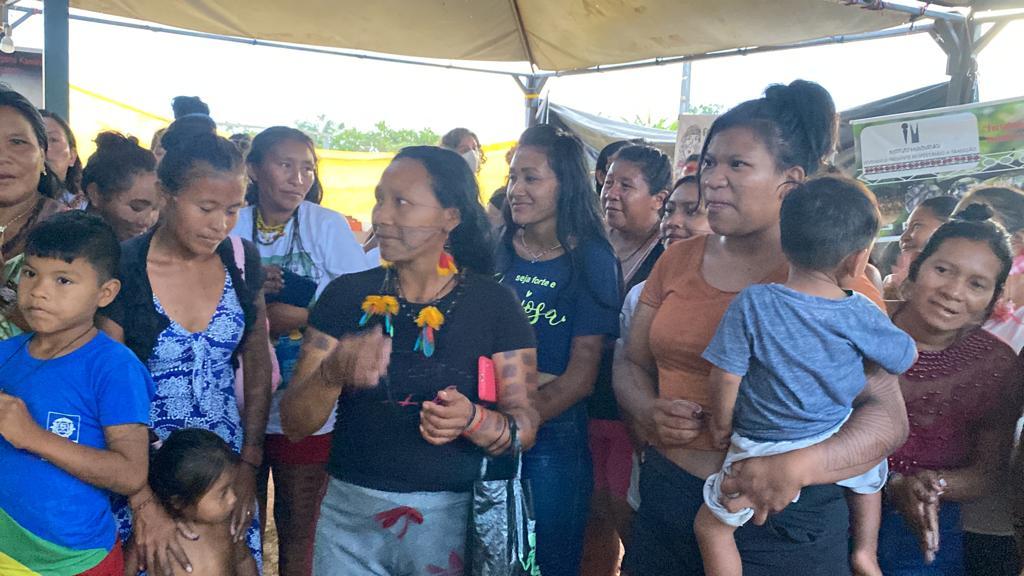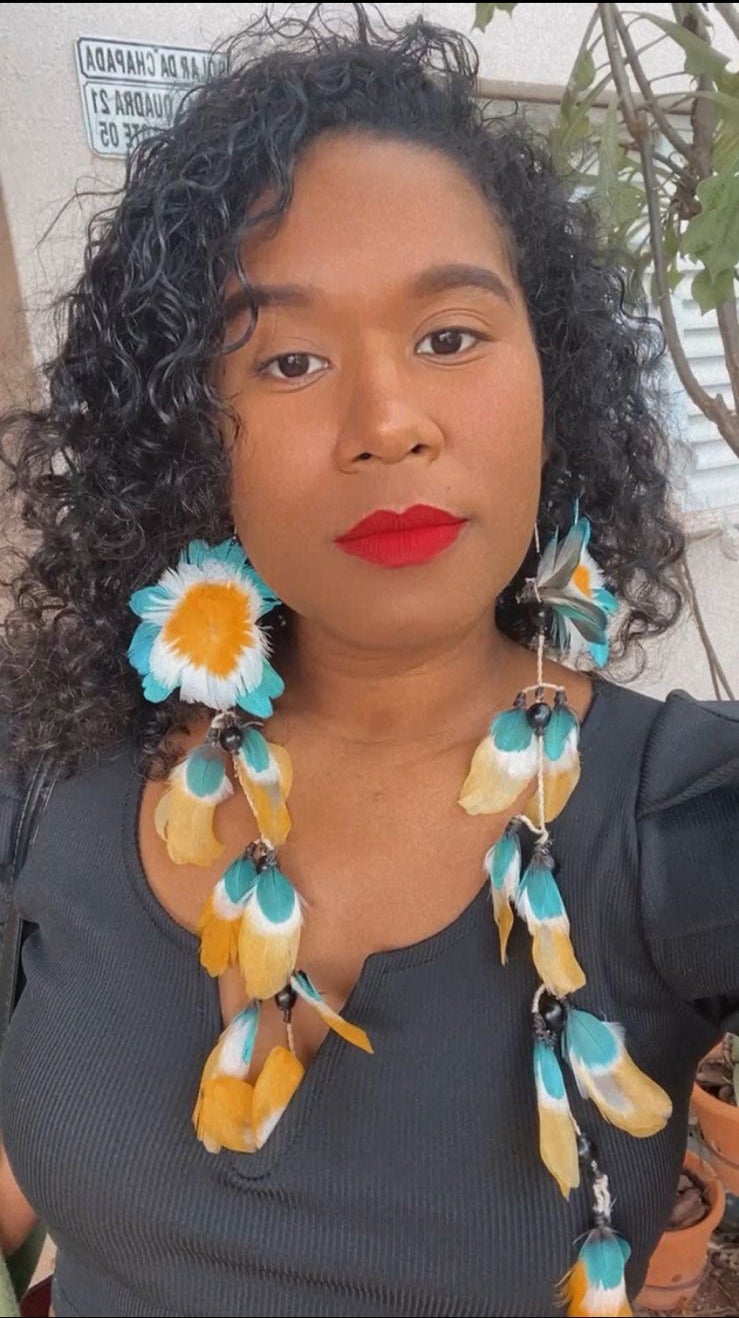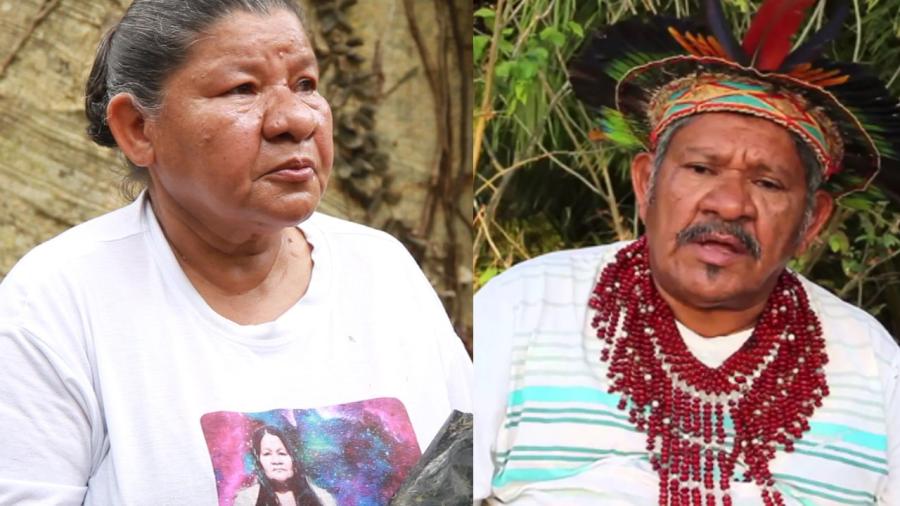
November 25 is the International Day to Eliminate Violence against Women. Violence in all of its forms, whether physical, psychological, sexual, or economic, against women and girls, are violations of human rights. Indigenous women are particularly vulnerable for two factors: ethnicity and gender. In response, more and more Indigenous women are organizing around the world to fight against violence.
Daniele Silva Rodrigues (Guajajara), 24, is from the Arariboia community in Maranhão, Brazil. She is part of the communications team at Articulación Nacional de Mujeres Indígenas Guerreras de la Ancestralidad (ANMIGA). Rodrigues has been active in the Indigenous rights movement since childhood, always following the causes and rights of Indigenous Peoples. In 2021, at the second march of Indigenous Women, where close to 6,000 women from different Indigenous Nations participated, she helped mobilize networks, printed graphics, and distributed audiovisual content to uplift the resistance of Indigenous women.

In July 2022, Rodrigues was awarded a Cultural Survival Indigenous Youth Fellowship. Her fellowship project, “The Project: Media and Rights of Indigenous Girls,’' aims to involve young Indigenous women in debates on gender violence through workshops; strengthen denunciation against violence, and support networks for Indigenous youth victims of violence; produce audiovisual material on violence together with the community; and carry out communication for education, denunciation, and visibility through traditional and digital media. “Using communication as a tool for change, we can debate and denounce violence,” she says.
The National Union of Ancestral Warriors is composed of Indigenous women from all six biomes in Brazil and reflects their knowledge, traditions, and struggles to build solidarity and mobilize in advocating for Indigenous rights and the life of their lands. According to ANMIGA, there are 305 known Indigenous Peoples in Brazil, and they speak 274 different languages. Rodrigues says that “the current scenario of violence against Indigenous women continues to be very common. Each day violence increases in their territories; sometimes violence comes from their own partners, and other times with the invasion of hacendados (ranchers). This is very common, especially for Guaraní women, who suffer daily threats and harassment from cattlemen who want to appropriate their territories.”
ANMIGA combats violence against Indigenous women by holding workshops and meetings of women in territories throughout Brazil. As part of Rodrigues’ fellowship project, a seminar was held by ANMIGA on October 15-17, 2022 in Brasilia, where participants discussed actions against the many forms of violence against Indigenous women. “Thanks to the workshops and meetings with women, they have come to understand there is a need to deal with the violence committed, even if it is difficult or a very delicate topic. There is a need to have these dialogues in the communities,” Rodrigues says. One of the biggest achievements she points to is the confidence that the women built to express and talk about their experience with gender violence: “Results have been very good. Some women who dared not talk about certain topics of violence have started talking and are trying to open up.”
As Brazil has faced the dismantling of Indigenous and environmental policies, ANMIGA has been fighting for years for the demarcation of Indigenous lands, against mining and the leasing of their ancestral territories without their Free, Prior and Informed Consent, against the attempt to make environmental licenses less rigorous, and against the financing of firearms in the field. Most recently, they launched the Kasa Observatory of Indigenous Women, which aims to build actions to prevent and combat violence inside and outside their territories for Indigenous women. Rodrigues reflects about the future of the Indigenous girls, youth, and women: “I believe that first steps are always difficult, but for change to happen, much dialogue is important not only within the territories, but also outside.”
Follow ANMIGA's work at:
https://anmiga.org/manifesto/
https://www.facebook.com/AnmigaOrg/
https://www.instagram.com/anmigaorg

